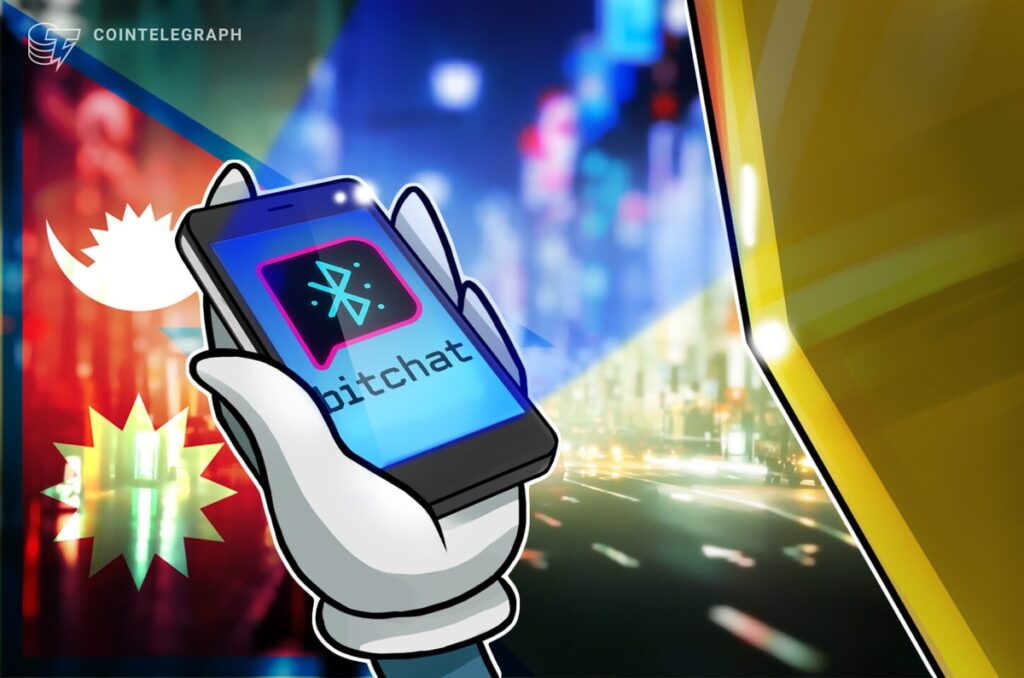More than 48,000 nepal people discharged the pairs of pairs of the Block Jack DORSEY CEO, Bitchat, in the midst of a series of violent protests on corruption and a prohibition of short social networks at the beginning of this week.
According to a similar increase in discharges in Indonesia, after corruption -related protests broke out, according to the Bitcoin open source developer “Callebtc”, which is working in Bitchat.
“Last week, we observed a sudden increase in Bitchat downloads of Indonesia during national protests. Today we see an even greater peak of Nepal during youth protests on government corruption and a prohibition of social networks,” he published XTC on X on Wednesday.
According to the graphics shared by Callebtc, Nepal had less than 3,344 downloads last Wednesday before the count increased to 48,781 on Monday, more than four times higher than the next country, Indonesia, which registered 11,324.
The strong rise was fed by a prohibition of short -term social networks: Block Facebook, Instagram, WhatsApp and YouTube, which caused a protest led by the Z generation that saw the Parliament and the Supreme Court of Nepal on fire. Nepal initially imposed the prohibition to stop the rapid spread of online anti -government content.
Security forces responded fiercely with living fire and tear gas, which resulted in at least 19 deaths, while hundreds were injured. The government building in which Prime Minister KP Sharma Oli resided.
OLI is in the center of corruption accusations, which include the misuse of public funds and the lack of transparency around political decision making. Now he has renounced his position.
Incidents in Nepal and Indonesia may indicate a growing trend of citizens that are increasingly resorted to decentralized and encrypted messaging applications, or “freedom of freedom”, to protect themselves from the surveillance or censorship of the government.
Meanwhile, the European Union is close to approving a “chat control” law that would eliminate encrypted messages, which requires services such as Telegram, WhatsApp and Signal to allow regulators to evaluate the messages before they are encrypted and sent.
Legislators from 15 EU member states have indicated support for the bill, and a vote of Germany could decide whether the controversial bill was approved.
Cryptographic messaging applications serve as an alternative
Until now, the adoption of decentralized and encrypted messaging applications has been promoted by users who leave centralized communication platforms that can censor the content or impose other restrictions.
Among the most popular centralized communication platforms are Messenger and WhatsApp, operated by the Meta Social Networks giant, a centralized corporation and promoted by profits that use personal data as a product.
DORSEY’S BITCAT has just two months
Dorsy launched a beta version for Bitchat in July, which uses Bluetooth mesh networks for encrypted communication without internet.
Related: Decentralized application of social networks to challenge the ‘walled gardens’ of Big Tech
According to the white document, the network is completely decentralized without central servers, accounts, email addresses, telephone numbers to register or infrastructure dependencies.
Cryptographic messages still far behind industry giants
Signal, the Damus, the session and the STATE of EST are among other messaging applications that have attracted users looking for safer alternatives and resistant to censorship.
However, decentralized and encrypted messaging applications probably have a long way to go until they can compete with social networks giants as a goal, which saw the amazing average users of 3.48 billion daily users in their family of applications, including Facebook, Messenger and Instagram, in June.
The 3.48 billion figure marked an year -on -year increase, indicating that it has not lost any impulse in the last 12 months.
Magazine: 3 people who unexpectedly became cryptographic millionaires … and one that did not

